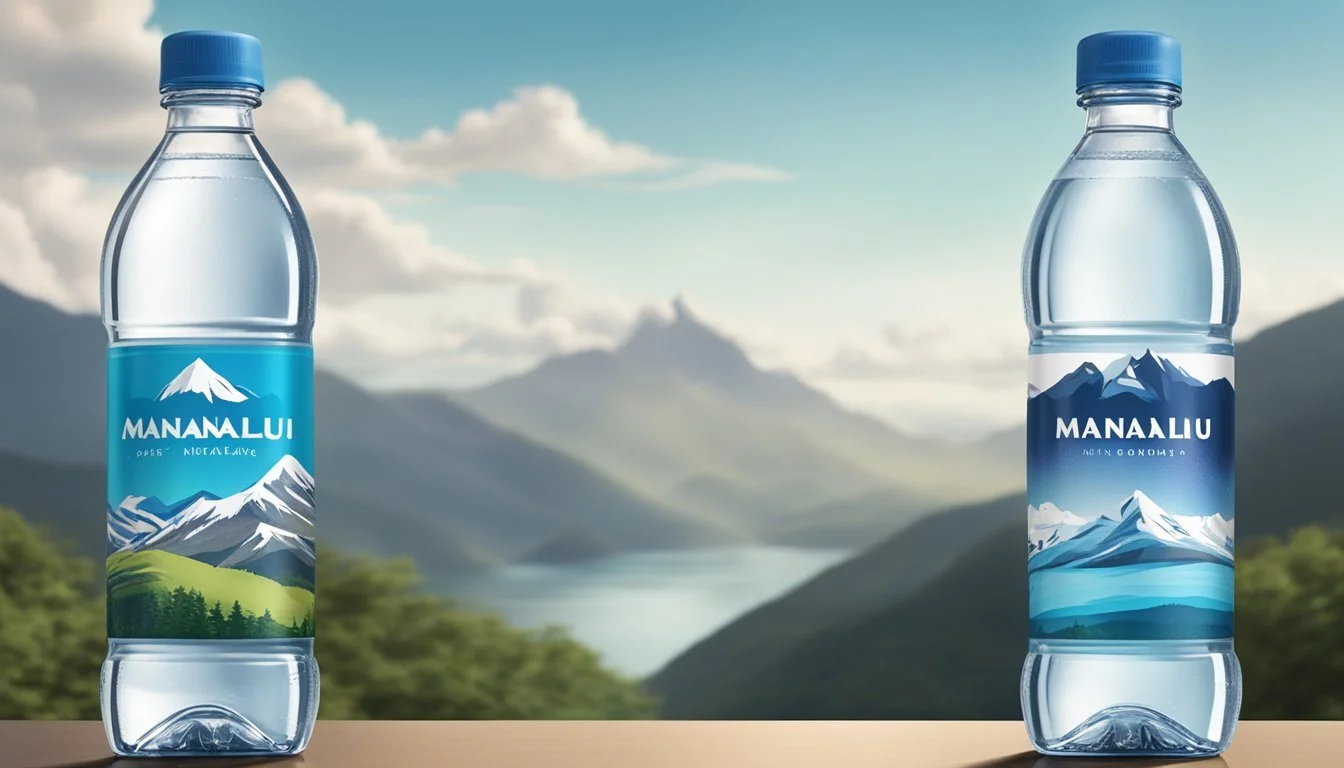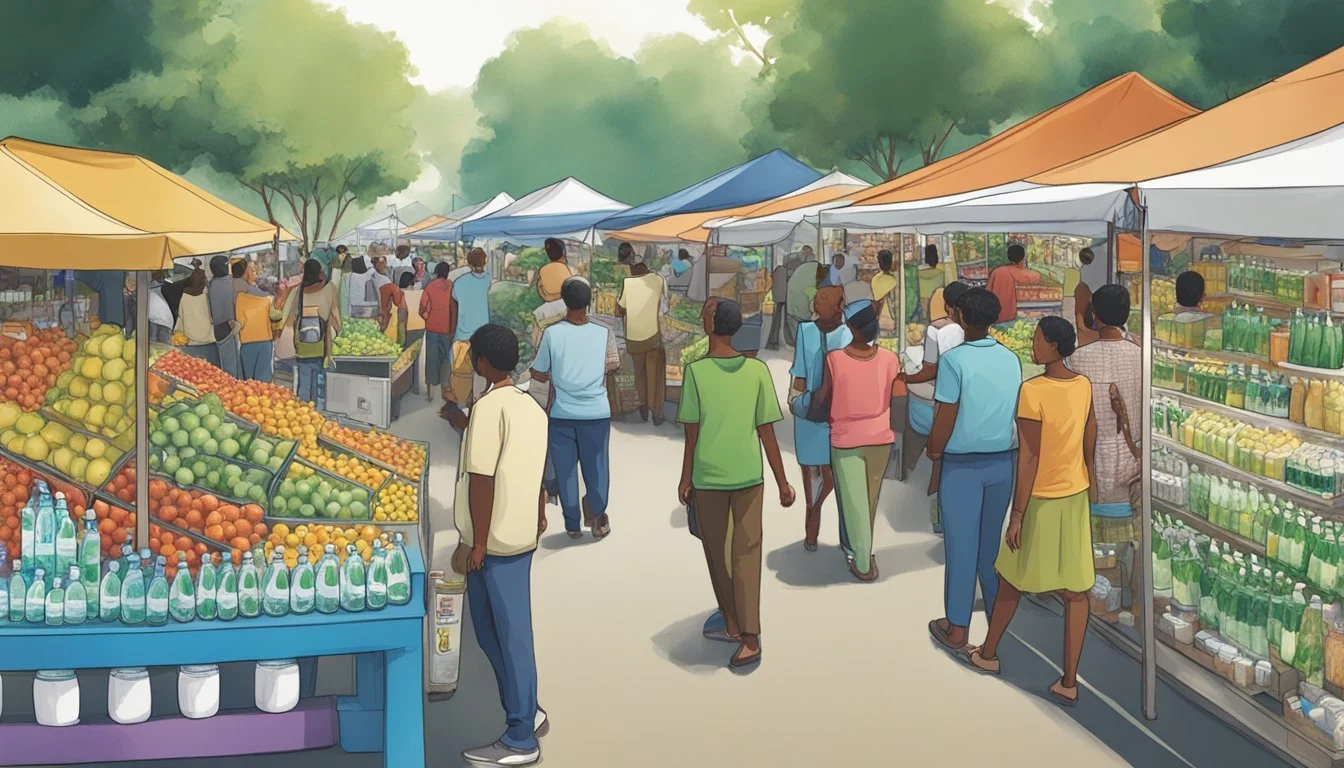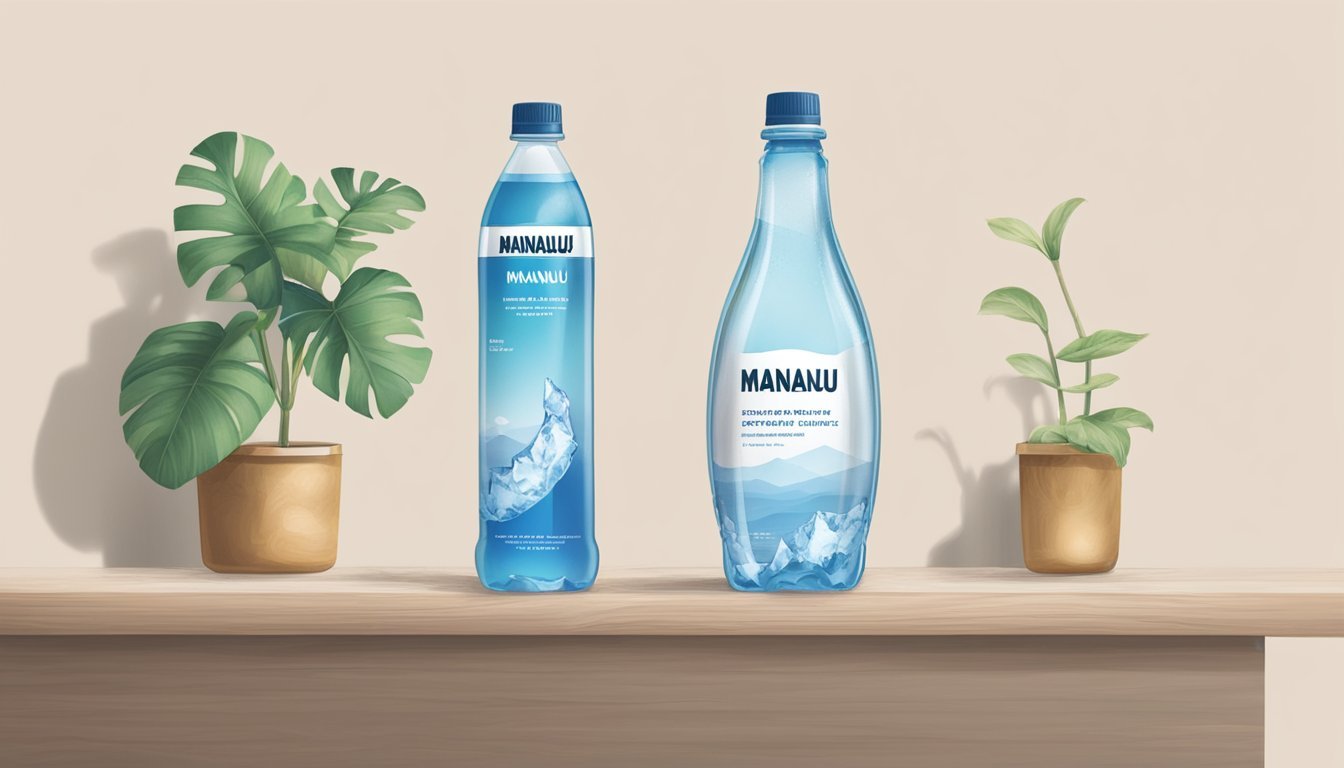Mananalu vs. Defy
A Comparative Review of Bottled Waters
Choosing the right bottled water can significantly impact both your health and the environment. In the ongoing debate between Mananalu and Defy, both brands claim to offer premium quality water with a commitment to sustainability. Mananalu, created by actor Jason Momoa, stands out for its use of 100% recyclable aluminum cans, aiming to reduce plastic waste.
Defy, on the other hand, positions itself as a high-performance water brand designed to provide hydration for athletes and active lifestyles. It enriches its water with essential minerals, making it a functional choice for those who demand more from their hydration options. Both brands offer unique benefits, making it essential to compare their taste, environmental impact, and overall value to consumers.
By diving deeper into what sets these brands apart, readers can make an informed choice that caters to their personal needs while also contributing to environmental sustainability. This comparison will shed light on which bottled water truly deserves a place in your daily routine.
Brand Profiles
Mananalu and Defy are notable players in the bottled water industry, each bringing unique qualities and missions to the table. They differ significantly in terms of their founding stories, brand missions, and overall identity.
Mananalu: The Mission Behind the Brand
Mananalu, founded by actor Jason Momoa, aims to address environmental concerns through sustainable practices. The Hawaiian-born star launched Mananalu to combat plastic pollution, especially in oceans.
The water is packaged in 100% recyclable aluminum cans, reducing the reliance on single-use plastics. This element appeals to environmentally-conscious consumers who prioritize sustainability. Mananalu's mission aligns with Momoa's ocean activism, furthering its commitment to eco-friendly solutions. It's available on platforms like Amazon, broadening its reach.
Defy: Unpacking the Brand Identity
Defy targets a different market segment by emphasizing performance and wellness. Positioned as a premium brand, it caters to athletes and fitness enthusiasts. The company leverages the popularity of its founders, who include retired NFL players, to build credibility.
Defy's water claims to enhance recovery and hydration, featuring unique mineral blends. It focuses on high-performance individuals who seek to improve their physical endurance. Packaging and branding emphasize strength, vitality, and reliability, attracting those interested in sports and personal well-being.
Environmental Ethos
When comparing the environmental credentials of Mananalu and Defy, several key factors stand out. Both brands emphasize sustainability, but they approach the issue in distinct ways.
Sustainable Packaging Solutions
Mananalu prioritizes the use of 100 percent recyclable aluminum cans for its water. This material is chosen due to its "infinitely recyclable" nature, ensuring that the cans can be reused indefinitely without degradation in quality. Defy, on the other hand, also focuses on eco-friendly packaging by utilizing recycled aluminum for its bottles, emphasizing the reduction of environmental footprint through robust recycling processes.
Aluminum packaging has the advantage of significantly lowering the reliance on fossil fuels compared to plastic, which often results in a smaller carbon footprint. Both companies aim to lead in sustainable practices by continuously improving their packaging solutions to minimize environmental impact.
The Impact of Single-Use Plastic
Mananalu actively campaigns against single-use plastic, replacing traditional plastic bottles with aluminum alternatives. The goal here is to reduce the environmental impact caused by plastic waste. Mananalu's initiative with Hawaiian Airlines highlights this commitment, offering their aluminum water bottles as a direct substitute for plastic ones in-flight.
Defy also addresses the problem of single-use plastics by promoting the use of recycled materials in their production lines. Their focus lies in educating consumers about the long-term benefits of avoiding plastics and opting for products that leverage recycled aluminum, thereby greatly reducing the number of plastics introduced to landfills.
Initiatives Against Ocean-Bound Waste
Mananalu takes an additional step in combating ocean waste through a partnership with rePurpose Global. For every bottle sold, they remove one water bottle's worth of plastic from ocean-bound waste. This initiative has successfully removed the equivalent of millions of plastic bottles, significantly mitigating the pollution of marine environments.
Similarly, Defy implements its own environmental initiatives, such as beach clean-ups and educational campaigns, aimed at reducing ocean-bound waste. They collaborate with various environmental organizations to amplify their impact and support sustainable practices across their supply chains.
These strategic efforts from both brands demonstrate a strong commitment to reducing ocean-bound waste and protecting natural ecosystems from the adverse effects of plastic pollution.
Product Composition and Quality
The composition and quality of bottled water are essential factors influencing consumer preference. Here, we compare the material of the bottles and the taste and purity of the water provided by Mananalu and Defy.
Bottled Water: Aluminum vs. Plastic
Mananalu uses 100% recyclable aluminum cans for their bottled water. Aluminum offers a durable and sustainable option, contributing to environmental efforts by minimizing single-use plastics. These cans are also highly refillable, making them an eco-friendly choice.
In contrast, many traditional bottled water brands, including Defy, rely on plastic bottles. While plastic bottles are convenient and lightweight, they pose significant environmental challenges due to their contribution to pollution and slower decomposition rates.
Aluminum bottles from Mananalu can be recycled indefinitely without degrading in quality. Plastic bottles, although recyclable, often end up in landfills or oceans. The choice of aluminum for Mananalu is a clear statement toward sustainability, while Defy's plastic bottles emphasize convenience.
Taste and Purity: A Comparison
Mananalu ensures the taste and purity of its water by triple-filtering through reverse osmosis. They add electrolytes like sodium, magnesium, and calcium to enhance flavor and support hydration. These steps are crucial for producing high-quality purified water.
Defy's water quality varies depending on the source and purification methods. Some use minimal filtration techniques, which can influence taste and purity. The use of plastic bottles can sometimes affect the taste of water if stored for extended periods, particularly in varying temperatures.
Mananalu’s use of aluminum helps maintain the water's freshness and purity over time, providing a consistent and clean taste. The addition of electrolytes not only improves flavor but also adds nutritional value. This approach means that consumers looking for superior taste and health benefits might prefer Mananalu over Defy.
Consumer Experience
When evaluating consumer experiences with Mananalu and Defy bottled water, important factors include convenience and accessibility, packaging design and functionality, and brand engagement and communities. These aspects help determine which brand offers a better overall user experience.
Convenience and Accessibility
Mananalu bottled water is widely available both online and in-store. It can be purchased through the Mananalu website, Amazon, and several grocery stores like Safeway, Whole Foods, Sprouts Market, and Foodland. This wide availability ensures that consumers can easily obtain the product.
Defy, on the other hand, prides itself on its straightforward online purchasing process. The brand offers free shipping on many orders, making it convenient for consumers who prefer shopping from home. Both brands' presence on major online platforms like Amazon makes them accessible to a broad audience.
Packaging Design and Functionality
Mananalu opts for aluminum cans that are 100% recyclable. This choice aligns with environmental goals and eliminates the need for single-use plastic bottles. The packaging is sleek and modern, fitting comfortably in the hand. However, it lacks resealable features, which can be a drawback for some consumers.
Defy’s packaging often includes resealable plastic bottles, which many find practical for on-the-go use. The resealable feature is valued by active consumers who need a portable and convenient option. Though not entirely devoid of plastic, Defy's design focuses on usability and convenience.
Brand Engagement and Communities
Mananalu actively engages with its community through social media platforms like Instagram. They often highlight their environmental mission, which resonates with eco-conscious consumers. Their partnership with rePurpose Global, which removes plastic waste for each bottle sold, adds to their appeal.
Defy also maintains a robust social media presence, connecting with consumers who value high-performance and functionality in their bottled water. By positioning themselves within active and athletic communities, they tailor their messaging to resonate with their audience effectively.
Both brands foster strong connections with their consumers, but they cater to different community values - environmentalism for Mananalu and active lifestyles for Defy.
Market Presence and Reach
Mananalu and Defy have each made a significant impact on the bottled water market, though they adopt different strategies to reach consumers. Examining their retail availability, partnerships, and market share reveals how these brands are competing.
Retail Availability and Purchase Options
Mananalu Water is widely available in major grocery stores like Whole Foods Market and Sprouts. Securing a presence in these high-profile retailers helps Mananalu to reach a broad range of environmentally-conscious customers. The brand also benefits from online purchase options on platforms like Amazon, making it accessible to a wider audience.
Defy aims to differentiate itself with specialized availability. The brand focuses on health-oriented grocery stores and athletic facilities, appealing to a niche market interested in fitness and wellness. This targeted approach, while narrower, helps Defy build a loyal customer base that prioritizes performance and healthy living.
Partnerships and Collaborations
Mananalu Water has formed strategic partnerships to enhance its market presence. Collaborating with Whole Foods and Sprouts has significantly boosted its retail footprint. They have also teamed up with Hawaiian Airlines, distributing their aluminum bottled water on flights to promote their sustainability mission to travelers.
Defy leverages its collaboration with athletes and fitness influencers to promote its brand. These partnerships are central to its marketing strategy, aligning the product with performance benefits and healthy lifestyles. This focus on fitness allows Defy to build strong brand associations with sports and physical wellness.
Market Share and Customer Base
Mananalu Water targets environmentally-conscious consumers looking to reduce their plastic footprint. The brand's commitment to sustainability, combined with high visibility in leading grocery stores, has enabled it to capture a meaningful share of the market. Mananalu appeals to a broad demographic that values ethical sourcing and eco-friendly products.
Defy attracts a specific segment of the market focused on health, wellness, and athletic performance. This water brand is favored by consumers who appreciate the purported benefits of enhanced hydration solutions tailored for active lifestyles. Defy's market share, while smaller, is highly engaged and loyal due to its strong brand positioning within the fitness community.
Both Mananalu and Defy have carved out distinct niches within the bottled water market by leveraging unique strategies tailored to their brand values and customer preferences.
Cost and Affordability
Consumers seeking to balance cost with environmental impact may find Mananalu's offerings compelling. This section examines the price points of Mananalu and Defy bottled water, assessing the value for money of each brand.
Price Comparison
Mananalu Water sells a 12-pack of aluminum bottled water for around $27.99, which breaks down to approximately 15 cents per ounce. By comparison:
Brand Price per 12-pack Price per ounce Mananalu $27.99 $0.15 Defy $22.99 $0.12
Defy, generally retailing for $22.99 per 12-pack, costs about 12 cents per ounce. These figures indicate that consumers will pay more per ounce for Mananalu. The decision influences those prioritizing cost efficiency in their purchasing decisions.
Value for Money
Both brands offer unique attributes that impact their perceived value. Mananalu markets its product as a sustainable alternative to single-use plastic, using 100% recyclable aluminum cans. Consumers valuing environmental responsibility might see greater value in paying the higher cost.
Defy positions itself as a performance water with added benefits like electrolytes and antioxidants. It offers a lower price per ounce and targets consumers looking for functional beverages. The perceived value hinges on individual preferences for sustainability versus added health benefits.
Consumers should weigh the extra cost of Mananalu against its environmental merits while considering Defy's functional benefits and lower price point. Each brand offers distinct attributes influencing its overall value for money.
Corporate Social Responsibility
Mananalu and Defy both emphasize sustainability and community engagement. This section will explore their specific programs and initiatives aimed at reducing environmental impact and supporting local communities.
Sustainability Programs
Mananalu is renowned for its sustainability mission, particularly its objective to eliminate single-use plastics. The company offers water in 100% recyclable aluminum cans, which significantly reduces plastic waste. Mananalu collaborates with rePurpose Global through the "Drink One, Remove One" initiative. For every bottle purchased, an equivalent amount of ocean-bound waste is removed. This commitment has led to the removal of approximately 15 million bottles of plastic waste from the environment.
Defy also prioritizes sustainability by advocating for eco-friendly practices across its supply chain. The company uses recyclable materials and seeks to minimize its carbon footprint. Their bottles are made from post-consumer recycled plastic, reducing the necessity for new plastic production. They also invest in renewable energy for their operations, aiming to diminish their overall environmental footprint.
Community and Environmental Commitments
Mananalu extends its corporate social responsibility to community and environmental commitments. It partners with various organizations, including the World Surf League, to promote ocean conservation. The company regularly participates in beach cleanups and awareness campaigns. These efforts underline their dedication to protecting marine ecosystems and engaging communities in environmental activities.
Defy focuses on local community engagement through health and wellness initiatives. The company supports athletic programs and sponsors community events that encourage a healthy lifestyle. They also contribute to local charities and provide resources for underprivileged communities. Their approach combines environmental stewardship with social responsibility, aiming to foster a positive impact both locally and globally.
Legislation and Eco-Policies
Legislation and eco-policies play critical roles in shaping the bottled water industry. Governmental regulations and brand compliance with eco-standards are crucial for assessing the environmental impact and sustainability efforts of companies like Mananalu and Defy.
Governmental Regulations Impacting the Industry
Governmental regulations influence how bottled water is produced, packaged, and sold. The Environmental Protection Agency (EPA) sets standards for water quality and contaminants, ensuring consumer safety.
Many countries enforce strict rules on packaging to reduce single-use plastics. For instance, the EU has a directive aimed at phasing out single-use plastics, compelling companies to adopt more sustainable packaging solutions.
In the United States, various states have implemented legislation that either bans or restricts single-use plastic bottles. These laws create a challenging environment for traditional plastic bottle manufacturers like Nestlé while encouraging innovations from companies that use alternative packaging materials, such as Mananalu's aluminum cans.
Brand Compliance and Eco-Standards
Mananalu and Defy both strive to meet and exceed eco-standards to minimize their environmental impact. Mananalu, founded by Jason Momoa, uses 100% recyclable aluminum cans and has embraced a plastic-negative mission through partnerships with rePurpose Global.
Each purchase helps to remove plastic waste from oceans, demonstrating their commitment to sustainability. Defy, on the other hand, focuses on sustainable practices within its production lines and promotes the use of eco-friendly packaging.
Both brands collaborate with environmental organizations to ensure compliance with the latest eco-policies and regularly update their practices to include new sustainability standards. This ensures that they not only meet governmental regulations but also positively contribute to the fight against plastic pollution.
Expert Opinions and Endorsements
Mananalu's environmental mission and the expertise of those who evaluate water quality play pivotal roles in its standing. Additionally, the support and promotion by high-profile individuals like Jason Momoa contribute significantly to the brand's recognition and image.
Water Sommelier Insights
Water sommeliers are professionals who specialize in tasting and evaluating water, considering factors such as mineral content and overall taste profile. They often argue that water bottled in aluminum, like Mananalu, maintains a fresher and cleaner taste due to reduced exposure to light and air.
Experts have highlighted Mananalu's commitment to sustainability as a major advantage. They praise the use of 100 percent recyclable aluminum cans. This design not only preserves the water's quality but also aligns with environmentally conscious consumption.
Celebrity Endorsements and Influence
Jason Momoa, widely known for his role as Aquaman, founded Mananalu with a mission to combat plastic waste. His involvement adds a significant celebrity influence, drawing attention to the brand's goals. His status as an ocean activist further strengthens the brand's credibility in promoting eco-friendly initiatives.
Momoa’s promotions have resulted in increased visibility and customer interest. His dedication to the cause and personal involvement in the brand's mission resonate with many customers. His engagement with other high-profile celebrities and partnerships with organizations like the World Surf League amplify the brand's message and broaden its audience.
More About Mananalu
Hawaiian Springs vs Mananalu: Which Bottled Water is Better?
Icelandic Glacial vs Mananalu: Which Bottled Water is Better?
Mananalu vs Cascade Mountain: Which Bottled Water is Better?
Mananalu vs Kirkland Signature: Which Bottled Water is Better?
Mananalu vs Richard's Rainwater: Which Bottled Water is Better?
Mananalu vs Talking Rain AQA: Which Bottled Water is Better?
Mananalu vs Whole Foods Italian Still Mineral water: Which Bottled Water is Better?
Mountain Valley Spring Water vs Mananalu: Which Bottled Water is Better?
Nestle Pure Life vs Mananalu: Which Bottled Water is Better?








